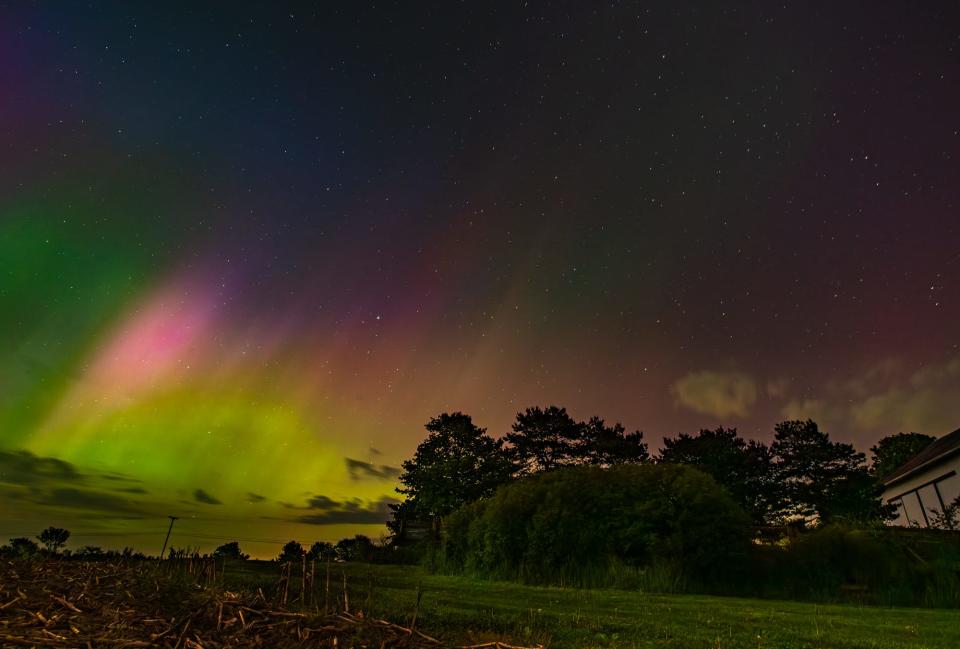Northern Lights? Or bust? Lansing area has another chance to see aurora borealis
LANSING — Will we see the Northern Lights? Or northern-lite?
The forecast is still unclear but space weather forecasters say there will be chances this week for a dazzling Northern Lights display in Michigan, similar to the stunning celestial show around May 10.
Forecasters gave stargazers in northern and upper Midwestern states hope for a show in the sky on Friday night into Saturday morning, but widespread sightings didn't materialize.
Now forecasters have their eye on a cluster of sunspots responsible for the spectacular nationwide May 10 aurora display, which rotated back in view of the Earth. That potentially sets up conditions for another spectacle, the federal Space Weather Prediction Center in Boulder, Colorado, said.
Very simply put, those sunspots fire up the solar storms that could trigger auroras here on Earth.
But the uncertainty of the outlook — and the overnight disappointment — goes to show that aurora forecasts can be finicky. Top experts say it’s still a bit too early to confirm if this week's potential display will happen.
It will come down to two factors: The sunspots will set the conditions broadly and if those are favorable, the local cloud cover at night will determine if people in a particular location can see it. Because even if the Northern Lights are popping, they are typically only visible when the skies are clear at night.
Seeing the display Monday or Tuesday night in the Lansing area may be difficult, said Nathan Jeruzal, a meteorologist with the National Weather Service station in Grand Rapids. There should be fairly heavy cloud cover those nights, he said.
But there should be minimal cloud cover, and sometimes no clouds on Wednesday, Thursday and Friday nights, Jeruzal said.
Those are likely to be the best chances for the Greater Lansing area to see the lights, Jeruzal said.
Skywatchers have their fingers crossed

Eager skywatchers have their fingers crossed, because June 6 is a new moon, meaning the skies will be extra dark and any aurora that does show up will be extra vibrant. Shawn Dahl, a senior forecaster for the Space Weather Prediction Center.
Dahl, an amateur astronomer and night sky photographer who missed the May 10 display because he was working, said he's hopeful for a new display caused by the sunspots.
"We have no way of knowing whether it may produce a CME again, but flare probabilities are still high with this region," he said.
Dahl said although the sunspot group known as Region 3697 has now rotated back to face Earth, it's too early to say whether it will send out another coronal mass ejection.
"We're forecasting stuff from 93 million miles away, so it's very difficult. And our science is limited," Dahl said. "We can do a great job of predicting the probability that the flare will happen, and if so, what level if might get to, and the same with radiation storms, but we have no way of knowing that a flare is imminent. That science doesn't exist. And we also don't have the science to know when a CME is going to explode off the sun. We have to wait for them to happen."
When exactly will the Northern Lights appear again? Conditions are primed for more aurora shows over the next few years, but experts say even the best predictions can only accurately be made a few days or even hours in advance.
"There are so many uncertainties, it makes it difficult to predict," Bill Murtagh, the program coordinator at the Space Weather Prediction Center, told USA TODAY last year.
This article originally appeared on Lansing State Journal: Will Michigan see the Northern Lights this week? What to know

